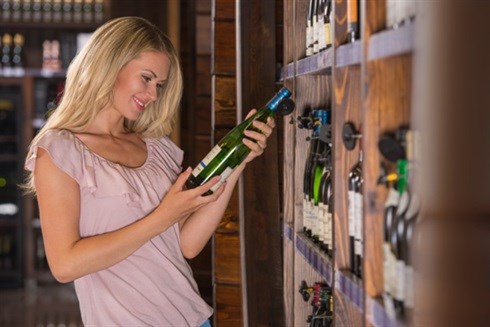Subscribe & Follow
Trending





 Vicinity Media: How we use DOOH in our retail solutionSharné Daniels, Chanté Naidoo & Olav Westphal
Vicinity Media: How we use DOOH in our retail solutionSharné Daniels, Chanté Naidoo & Olav Westphal
Shoprite goes to top court over loss of licence to sell wine next to food

This is not a very large dent considering parent Shoprite Holdings made R57.5bn in sales in the six months ended December. However, Shoprite also said the closure would impact negatively on its business and marketing strategy. The case is also legally significant - the judgment could break new ground on what constitutes property under the constitution, and potentially pave the way for challenges to other licences if this one is regarded as property.
Eastern Cape Liquor Act
The 2003 Eastern Cape Liquor Act did away with grocers' wine licences that entitled them to sell wine on their shelves next to food. The act said they had to apply for a new type of licence, which would allow them to sell all alcohol, but on separate premises. They were given 10 years to make the transition, during which time they could carry on as before.
Shoprite Checkers argued that the lapsing of the grocers' licence was unconstitutional because the licences were property, and the government had taken them away arbitrarily, without "sufficient reason".
The company's counsel, Jeremy Gauntlett SC, referred to previous Constitutional Court cases, which had held property to include "incorporeals", or things one could not touch, such as mineral rights or a monetary claim in law. The grocers' licences had commercial value, had "vested" and were transferable, making them property, he said.
But counsel for the Eastern Cape government, Eric Ford SC, disputed the transferability of the right given under the transitional arrangement in the 2003 act, and said the commercial value came not from the right itself but from its exploitation. It was contested internationally whether licences were property because they were dependent on "mutable government policies and programmes".
Property vs control
Liquor licences, in particular, should not be considered property because of the special nature of regulating liquor, which was "one of the few addictive, psychoactive drugs freely available to the public", Ford said. A liquor licence was part of a framework designed to impose control by the state over the use of a dangerous substance.
But Gauntlett said alcohol was not illegal. "It's not ground rhino horn that my clients are trying to sell next to the muesli."
Gauntlett faced questions from the bench on whether there had been an arbitrary deprivation of property. Deputy Chief Justice Dikgang Moseneke asked: "Does it make it arbitrary because your client prefers to sell close to the food, and the majority of people sitting in the provincial legislature make a different choice?"
Gauntlett replied that the government could regulate freely, but once the right was property under the constitution, there had to be "sufficient reason" to take it away. Ford had argued that the reasoning behind the act was to ensure better control over the sale of alcohol, given the health risks and the laws around it. But Gauntlett said mere say-so that there would be more control if alcohol were to be sold on separate premises was not good enough. Judgment was reserved.
Source: Business Day via I-Net Bridge
Source: I-Net Bridge

For more than two decades, I-Net Bridge has been one of South Africa’s preferred electronic providers of innovative solutions, data of the highest calibre, reliable platforms and excellent supporting systems. Our products include workstations, web applications and data feeds packaged with in-depth news and powerful analytical tools empowering clients to make meaningful decisions.
We pride ourselves on our wide variety of in-house skills, encompassing multiple platforms and applications. These skills enable us to not only function as a first class facility, but also design, implement and support all our client needs at a level that confirms I-Net Bridge a leader in its field.
Go to: http://www.inet.co.za











